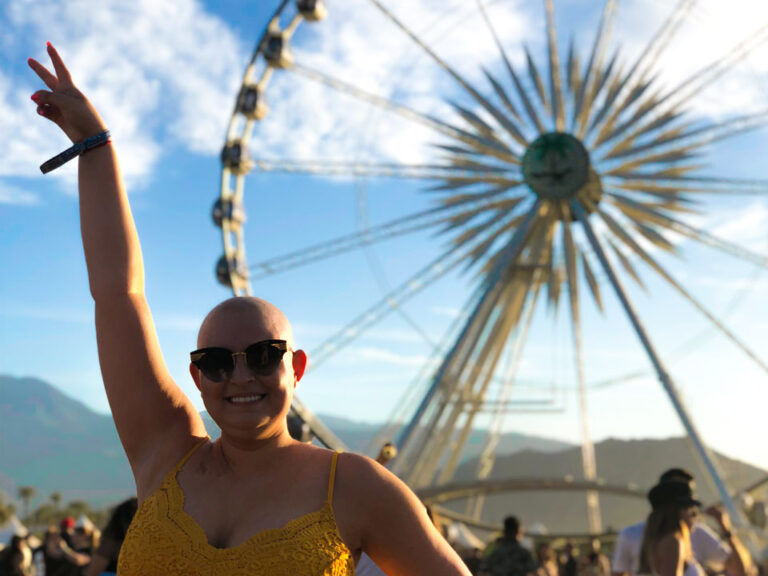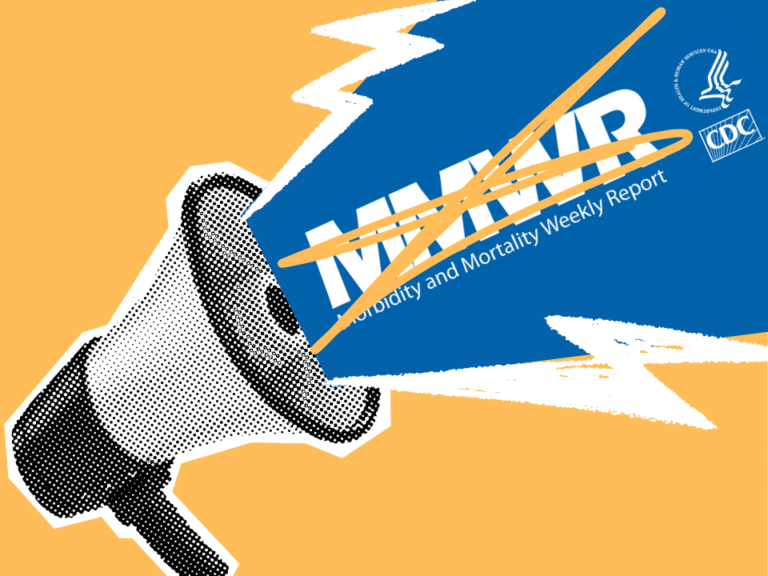ConcertAI, a company focused on real-world evidence and generative AI, has acquired CancerLinQ, a real-world data and quality of care technology service that was launched by the American Society of Clinical Oncology a decade ago.
Announcing the deal on Dec. 11, the parties said that in order to be successful, CancerLinQ, which has a big mission and a small staff of about 50, required far greater resources than even a financially robust professional society like ASCO was able to provide.


Chief executive officer,
American Society of Clinical Oncology;
Executive vice chair,
Conquer Cancer Foundation
“The most important thing for us was that the enterprise would have the resources it needs to succeed, and that therefore what we have put into it over the decade wouldn’t go to waste,” ASCO’s Chief Executive Officer Clifford A. Hudis said to The Cancer Letter.
“But it’s important to point out, this is not like we are turning over the keys and walking away,” said Hudis. “We are engaged now and for the future in a cooperation agreement, and we have plans to rely upon access to this data for years to come. We think that this is a hugely promising area, and we need to have access to it for the benefit of our members and community.
“We just want to see CancerLinQ resourced for success.”
A conversation with Hudis appears in this special report by The Cancer Letter.
The terms of the acquisition were not announced. ConcertAI officials said the purchase of CancerLinQ is part of the company’s plan to invest $250 million in cancer informatics.
CancerLinQ has a network of more than 100 cancer centers and oncology practices, as well as nearly 7 million patient records obtained through 10 EMR system integrations that bring together clinical data from most major electronic medical record systems.
ConcertAI, through a predecessor firm called Precision Health AI, has been working with ASCO for the past five years, curating and licensing the data in CancerLinQ.


Chief executive officer,
ConcertAI
“We are a $165-$170 million company that just does work in oncology,” Jeff Elton, CEO of ConcertAI, said to The Cancer Letter. “We work in real-world data and supporting oncology clinical trials. We’re 1,100-1,200 people, and they were between 50 and 60 people—just to give you the orders of magnitude—in terms of capability that could be brought to that.”
In 2021, the most recent year for which numbers are available, ASCO had total revenues of $107.6 million, and ASCO’s Conquer Cancer Foundation had $33.1 million in revenues.
Gaining access to CancerLinQ is a boost for ConcertAI, a company that serves over 1,900 clinical sites and 45 biomedical innovators and has offices in Cambridge, MA, Philadelphia, Frankfurt, Germany, Raleigh-Durham, NC, Memphis, TN, Bangalore, India, and Tokyo.
All of CancerLinQ’s staff members have received offers of employment from ConcertAI.
“CancerLinQ is one of the largest views of oncological patients and their outcomes over years that exist in the world,” ConcertAI’s Elton said. “So, you’ve got seven million different records. It is not a single EMR—it’s 10 EMRs that are covered.”
ASCO was uniquely qualified to build this system, Elton said. “I think that ASCO’s neutrality and ASCO’s being research-centric, and one of the largest and most sophisticated medical societies and organizations, and a guidelines-setting body in the world engendered confidence and interest—and got the ability to say, ‘Yes, if you’re seeing value on this, we’ll follow you into that journey.’”
Would the practices that provided data to ASCO, a non-profit, now provide the data to a for-profit entity operating in a competitive market?
“I hope so, because I think that their experience—the value they perceive from their engagement—is going to become a better one,” Hudis said. “I don’t want to speak for whatever ConcertAI may choose to do with CancerLinQ, but I think that the quality of the services that they receive should rapidly improve.”
The services ConcertAI would provide fall into two categories. Said Hudis:
One is the quality tools, which they are very committed to enhancing. That’s, actually, an important part of this deal for them, and it’s important for us. That’s the on-ramp to the currently existing [Quality Oncology Practice Initiative] certification program, but it’s also in the near-term future, the on-ramp potentially to the ASCO-certified program that we launched this year, which is a broader tool for navigating the transition to value-based care.
That’s one broad area. And the second is that ConcertAI brings a clinical trials matching tool into this, which I understand they intend to launch pretty quickly into this network. Clinical trials matching tools—that’s been one of the dreams for us at CancerLinQ and accelerating its availability is an exciting opportunity
These are examples of the synergies that come immediately to bear.
Under a cooperation agreement announced in conjunction with the acquisition, after the purchase ConcertAI will collaborate with ASCO to enhance the value of CancerLinQ for oncology practices:
- Bolstering SmartLinQ to include new data sources alongside the robust clinical data currently available,
- Making clinical trials participation more accessible through ConcertAI’s Digital Accelerated Clinical Trials (DACT) platform,
- Developing more robust clinical decision support within SmartLinQ,
- Supporting automated EMR integration, bringing SmartLinQ seamlessly into practices’ workflows.
ASCO’s work on CancerLinQ began in 2010, with an estimated budget of $80 million for the first five years. At that time, funds were raised from philanthropy, ASCO’s revenues, its foundation, advocacy organizations, and pharmaceutical companies.
CancerLinQ was publicly launched in 2014 (The Cancer Letter, Nov. 22, 2013).
As the professional society ventured into the Big Data business, its leadership regarded CancerLinQ as an essential extension of its mission.
We think that this is a hugely promising area, and we need to have access to it for the benefit of our members and community. We just want to see CancerLinQ resourced for success.
Clifford Hudis
“ASCO is not a business,” Hudis, who at the time was the professional society’s president and chief of the Breast Cancer Medicine Service at Memorial Sloan-Kettering Cancer Center, said to The Cancer Letter at the time.
“If our participation in the market ultimately drives the development of a superior tool, but from somebody else, then I would say we have accomplished our goal. We are an honest broker,” Hudis said. “Our goal here is to get this job done and to profit, in terms of society and societal benefit, the maximum number of people. If we support somebody who can do better, that’s fine. We just need this to happen for the good of the patients we serve.”
At the outset, ASCO was investing $15 million to $20 million per year in the project, ASCO officials said at the time.
The goal was to develop a system that would be able to produce insights based on up-to-date findings as well as answer research questions.
“We can envision a process where investigators will pose a question, and we’ll apply for a set of reports relative to the question at hand,” ASCO’s then CEO Allen Lichter said to The Cancer Letter in 2015.
“This would be, I would imagine, reviewed by some independent group, and for those proposals that are considered meritorious, a price will be set to cover our costs of pooling the data and doing the analysis, and we will be sending those reports on to the investigator.
“I expect that not every proposal will be considered meritorious, but we do feel that it’s important to set a standard and a threshold for working with CancerLinQ data,” Lichter said.
In December 2017, ASCO reached a deal with Tempus and Precision Health AI, the predecessor of ConcertAI, to curate and license the data in CancerLinQ (The Cancer Letter, Dec. 21, 2017).
The collaboration gave the companies access to de-identified data from over the database that at that time contained 1 million records.
The purpose of the partnership was to keep expanding CancerLinQ and look for better ways to aggregate and mine the data—and decrease ASCO’s spending on development of the database.
The data could be used in drug development as well as in scientific projects and quality initiatives, the partners said at the time.
However, five years into development of CancerLinQ, ASCO realized that hundreds of millions of dollars will be required to cleanse, structure and expand the data to a level where it could enhance quality and provide real-world evidence and patient outcomes for researchers and pharmaceutical companies.
Describing the 2017 agreement, ASCO officials said that the need to put together a collaboration became apparent after five years of running CancerLinQ, as requirements for storing and curating data continued to mount and become increasingly complex.
As a non-profit, ASCO had neither the capital nor the expertise to take the project to the next level, Hudis, by then the professional society’s CEO and chairman of the CancerLinQ board of governors, said to The Cancer Letter at the time.
“What we hope that the world sees in this deal is that a professional society has taken ambitious steps to build a heretofore nonexistent resource,” Hudis said at the time. “We have expended tremendous resources to get to this point, and have now identified a novel way to transparently partner with for-profit entities to bring expertise to allow us to deliver faster on our mission.
CancerLinQ is one of the largest views of oncological patients and their outcomes over years that exist in the world. So, you’ve got seven million different records. It is not a single EMR—it’s 10 EMRs that are covered.
Jeff Elton
“That really is why we are doing this. It is not a sale; there is nothing being sold. It is a licensing arrangement. But our number-one aim is to enable our members to deliver higher quality care more broadly and faster than before.”
The terms of the 2017 deal, like the terms of the current deal, were not disclosed. Under the 2017 licensing arrangement, CancerLinQ remained a non-profit and was still responsible for data integration and provision of tools and reports to participating oncologists and cancer care sites.
The collaboration created CancerLinQ Discovery, a service that was to allow subscribers to submit requests for customized sets of anonymized and statistically de-identified real-world cancer care data.
Even with this deal, CancerLinQ was not expected to break into the black, Hudis said at the time.
“Our goal is to get CancerLinQ to break even,” he said in 2017. “We’re not quite there, but we’re closer and we’re sustainably close enough. It’ll become a modest enough loss that we could afford to do it, if it’s delivering value for a long time.”
Recently, ASCO used CancerLinQ to provide insight into the impact of the COVID-19 pandemic on patients with cancer, characterizing cases by age, gender, race, ethnicity, and cancer diagnosis (The Cancer Letter, June 5, 2020).CancerLinQ was also involved in a broad collaborative effort—convened by Friends of Cancer Research—to evaluate and validate real-world endpoints. In September 2020, the collaboration concluded that these real-world endpoints can be used to describe patient outcomes that are analogous to results generated through conventional endpoints in clinical trials (The Cancer Letter, Nov. 22, 2019; Sept. 25, 2020).













